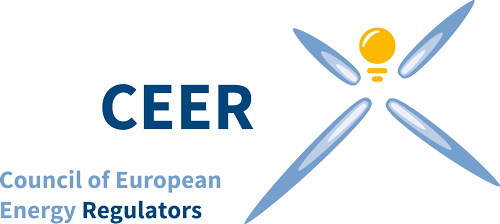September 2009
| | |
| European Energy Regulators’ News | |
| Issue: September 2009 | |
| If this e-mail is not displayed correctly, please click here! | |
| Publications Press Release: | Editorial Following a public consultation, ERGEG has revised its 2006 Guidelines of Good Practice (GGP) on electricity balancing integration. We are currently consulting until 6th November on our draft 2010 Work Programme. CEER held, in Berlin, a workshop on unbundling energy undertakings in relation to corporate governance principles. This month, there is a quarterly update of all regions of the Regional Initiatives. Finally, we look forward to welcoming you at the World Forum on Energy Regulation in Athens, 18-21 October. |
| The European regulators work to ensure retail markets function properly and to empower customers so that they have the motivation to shop around for the best deal. This is not a lone crusade by the Europe’s energy regulators. Two big developments – the 3rd Package, and Citizens Energy Forum – also act in the energy consumer’s interest. 3rd Package and Consumer Issues Citizens Energy Forum This month, ERGEG published two Status Reviews which seek to better protect energy customers and promote retail market competition to the benefit of Europe’s energy customer (see Press Release, PR-09-09). In the first, ERGEG finds that supplier of last resort and default supplier are understood in many different way, and that it s usually the incumbent energy supplier who acts as both. In an effort to promote competition, ERGEG recommends a tendering procedure for appointing a default supplier/supplier of last resort, and also time-limiting these services. |
| CEER/ERGEG Publications |
| Reports • Revision of GGP on Electricity Balancing Markets Integration, 25 September 2009, (E09-PC-35) • Status review of the definitions of vulnerable customer, default supplier and supplier of last resort, 18 September 2009, (E09-CEM-26-04) for DSOs, 18 September 2009, (E09-URB-20-05) • ERGEG's response to GTE+ 2010 Annual Work Programme, 14 September 2009 • ERGEG Principles: Capacity Allocation Mechanisms and Congestion Management for Gas Transmission Networks, 24 August 2009, (E09-GNM-07-03) Workshops (see Events section of website) : • CEER/FSR workshop on unbundling of energy undertakings in relation to corporate governance principles, 24 September, Berlin • North West Gas Regional Initiative Workshop on Investment, 24 September 2009, Stockholm Press Release (see Press Releases section of website : • Energy regulators highlight “fuzzy” distribution separation, default suppliers and suppliers of last resort, 18 September 2009 (PR-09-09). Public Consultations (see Public Consulations section of website): • Draft European Energy Regulators 2010 Work Programme, 11 September 2009, (E09-PC-39) |
| Calendar of current and future public consultations |
The standard period for ERGEG public consultation is 8 weeks. For further information (including ERGEG’s newly revised public consultation guidelines) visit the public consultations section of the website. The 2009 Regional Initiative Conference takes place in Brussels on 17 November 2009. Participation is by invitation only. |
| Events |
| See all dates of Regional Initiatives meetings (RCC, IG, SG) on the ERGEG online Calendar. |
| Regional Initiatives Update |
| This month all regions are in the spotlight in the Quarterly reports. The key updates are the following: |
| International Activities |
| See the programme of the upcoming World Forum on Energy Regulation IV, from 18-21 October on www.worldforumiv.info. |
| About the European Energy Regulators' News |
| Reported content is given for information purposes only and does not legally bind any of the involved parties. Where third-party sources are mentioned, CEER/ERGEG is not responsible for the accuracy of the information. Your feedback on European Energy Regulators’ News is welcome, so as to improve future issues. European Energy Regulators' News is a free, electronic newsletter and covers the period from the previous issue to the date of publication. It is your gateway to the news from Europe’s energy regulators, press releases, public consultations, advice to the European Commission, news from the Regional Initiatives, and regulation and policy developments at a national level. Become a CEER/ERGEG News Subscriber and receive it directly to your mailbox. Contact: una.shortall@ceer.eu
|

